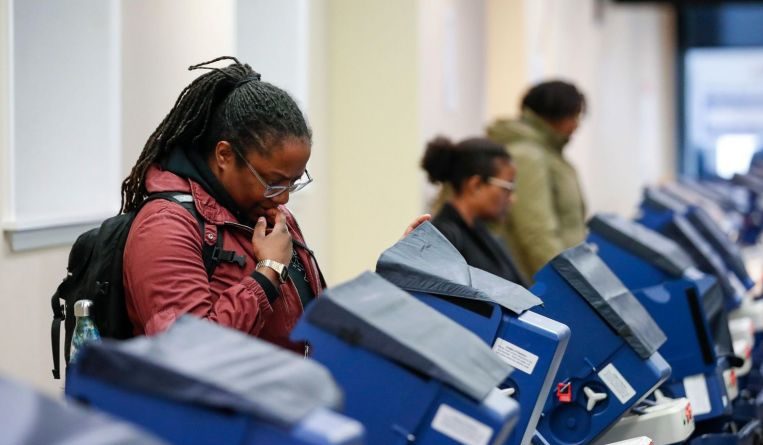Russians’ election hacking put DU30 as President and Sara’s as Senators?
WASHINGTON – Russia will not be alone in trying to interfere with the next American election, and other copycats are using similar techniques against other democracies around the world, Stanford University researchers have warned in a report.
Russian influence operations used against America during its 2016 presidential election – from brigades of online impostors deepening pre-existing social divisions to hacking operations and obvious propaganda – have been picked up around the world, they said.
“American policymakers rightly are focused on threats to election integrity in the United States in the run-up to the 2020 presidential vote, but these threats are part of a much larger, ongoing challenge to democracies everywhere,” said the report titled “Securing American elections”, which was released on June 5.
.
–THIS SPACE BELOW IS RESERVE FOR YOUR ADVERTISEMENT –


.
The 96-page report was written by 14 authors, including former US ambassador to Russia Michael McFaul and former Facebook chief security officer Alex Stamos, who headed the social media giant’s investigation into 2016 election manipulation before he joined Stanford University in August last year.
“There’s a long history in cyber conflict of a big powerful country proving that there is a type of attack that is effective, and that will be picked up by smaller countries and possibly private groups,” said Mr Stamos during a panel discussion organised by the Washington-based Bipartisan Policy Center on Monday (June 10).
“The Russians have demonstrated a pretty good playbook of influencing a democracy. If you look at Facebook announcements, they’re announcing the Iranian Revolutionary Guard Corps using the exact same techniques, they’re talking about potentially Chinese-aligned groups doing it.”
.
–THIS SPACE BELOW IS RESERVE FOR YOUR ADVERTISEMENT –

Additional actors should be expected to join Russia in future attempts to influence political discourse online, the report said.
.
–THIS SPACE BELOW IS RESERVE FOR YOUR ADVERTISEMENT –

It noted that the barriers to mounting disinformation campaigns depended less on computing power and technical skill, and more on the ability to write natural-sounding text in English or the targeted native language, and identify psychological vulnerabilities in the voters targeted.
Facebook has been posting semi-regular updates on its website on networks of fake accounts it has shut down around the world.
It removed 2.2 billion fake accounts from January to March this year, nearly double the 1.2 billion accounts it disabled in the previous quarter.
Most recently on May 28, Facebook announced it removed 51 accounts and 36 pages involved in coordinated inauthentic behaviour originating in Iran.
These accounts pretended to be located in the US and Europe and impersonated legitimate news organisations in the Middle East, posting anti-Saudi Arabia posts and sometimes contacting authentic users who later posted content associated with this activity.
Two weeks earlier on May 16, Facebook shut down a similar network of 265 accounts and groups from Israel which focused on Nigeria, Senegal, Togo, Angola, Niger and Tunisia along with some activity in Latin America and Southeast Asia.
The Israel-based accounts, run by a social media company called Archimedes Group, posed as locals and influenced political discussions about candidates and elections in the various countries. It even published allegedly leaked information about politicians.
On April 1, Facebook removed 103 accounts from a network linked to a public relations wing of the Pakistani military, and another 687 accounts in India linked to individuals associated with an IT cell of the Indian National Congress party.
.
–THIS SPACE BELOW IS RESERVE FOR YOUR ADVERTISEMENT –

.
The variety of behaviour from the fake account networks mirror Russian influence operations against America, which have been publicly documented in reports and testimony before Congress – most recently in Special Counsel Robert Mueller’s report in April which concluded that the Russian government interfered in the 2016 presidential election in a sweeping and systematic fashion.
With the next election looming, experts are warning that the threat remains and that government agencies, Congress, state governments, media and social media companies, candidates and voters must do more to improve the integrity and security of the election.
The report set out 45 election security recommendations, among them the banning of foreign governments and individuals from buying online ads that target voters according to their demographics with pinpoint accuracy, and clearly labelling when content comes from foreign government-aligned media.
Stanford University law professor and report co-author Nate Persily said: “It’s not just a Russian problem, you need to think about the Iranians, the Chinese, other non-state actors and how they might have an impact on our elections.
“The Democrats and the Republicans are vulnerable here. We need a bipartisan solution to get at this.”
.
–THIS SPACE BELOW IS RESERVE FOR YOUR ADVERTISEMENT –










